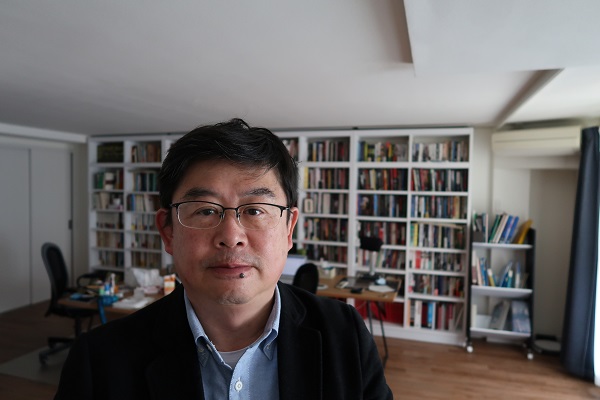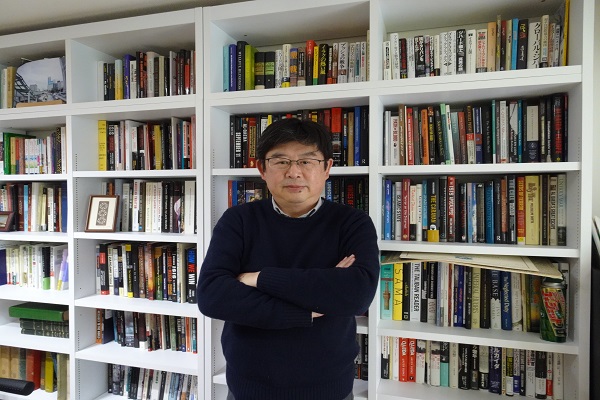Iran, Saudi Arabia Facing Common Challenge: Japanese Analyst

It must be a very good opportunity for the two countries to cooperate and overcome the current crisis, Shuji Hosaka told IQNA in an interview.
Shuji Hosaka is currently Visiting Professor of Waseda University. After receiving an MA (Oriental History) from Keio University, Hosaka became a Special Assistant of the Japanese Embassies in Kuwait and Saudi Arabia. Since then, he has held various posts in the field of the Middle Eastern studies, including Researcher of the Middle East Institute of Japan, Director of the JSPS Research Station, Cairo, and Professor of Kindai University. He joined JIME Center, IEEJ in 2005.
Following is the full text of the interview:
IQNA: There are rumors that the King of Saudi Arabia may step down and Crown Prince Mohamed bin Salman take the throne in the next few months. In that case, what changes are we going to see in Saudi Arabia's domestic and foreign policy?
Hosaka: There have been such rumors for many years after MbS was appointed as Vice-Crown Prince of Saudi Arabia by his father, King Salman, but so far none of them have turned out to be true. However, sooner or later, he will ascend the throne whether by King Salman’s abdication or demise.
I don’t expect any substantial change in domestic politics after enthronement of MbS, because he has been a de facto ruler of Saudi Arabia for years. As for diplomacy, I think some changes will come out, especially in Saudi relations with Palestine and Israel. King Salman has often shown his sympathy towards the oppressed Palestinians and, on the contrary, MbS is supposed to wish the establishment of good relations with Israel.

IQNA: Some believe that bin Salman’s social reforms in Saudi Arabia are a pretext to cover issues such as the lack of democratic reforms in the country. What are your thoughts on this?
Hosaka: Maybe. Those who live in free and democratic countries criticize MbS, saying his social reforms are a pretext of concealing some critical issues in Saudi Arabia. But, at the same time, from a Saudi point of view, these reforms are inevitable developments of Saudi society. A lot of youngsters in Saudi Arabia have been expecting for many years that those who have power to do that should change the society adapting to a new reality. And then, MbS appeared as a “reformer” of the society, even though his political measures seem to be too aggressive for conservative Saudis. Many young Saudis whom I have met in Saudi Arabia are not interested in politics. In my understanding the majority of the youth in the Arab (Persian) Gulf states including Saudi Arabia don’t think that democracy will work in their countries, except Kuwait. It can’t be denied that there are a lot of enemies and oppositions against MbS inside and outside Saudi Arabia. Some people say the current situation of Saudi Arabia under MbS is similar to the last days of the Shah in Iran who had propelled the Westernization of the country. However, most of Saudi youth, I think, support the direction of his Vision 2030.
IQNA: Despite tensions between Iran and Saudi Arabia, the two countries have repeatedly spoken of a desire to normalize relations. How do you assess this?
Hosaka: The current situation of the relations between Saudi Arabia and Iran is abnormal. I believe the easing of tensions between the two countries is possible. I witnessed the rapid and drastic détente between Saudi Arabia and Iran just after the (Persian) Gulf War in 1991. At that time, the two countries had a common enemy, Saddam Hussein. And now, they are facing the common challenge, the coronavirus (COVID-19). It must be a very good opportunity for the two countries to cooperate and overcome the current crisis.
IQNA: Do you think that after the withdrawal of the US forces from Iraq, Saudi Arabia can be considered as Iran’s rival in this country?
Hosaka: No. I think Saudi Arabia does not have an intention to intervene in Iraqi internal politics, except when the current regime ignores or oppresses the Sunni minority.
IQNA: How do you assess the US-Saudi relations in light of bin Salman’s policies?
Hosaka: First, it depends on Mr. (Donald) Trump’s reelection. If Mr. Trump wins, the bilateral relations will continue as it is. However, they will face the new challenges like low oil price and the coronavirus. If Saudi Arabia loses its money due to low oil price, its relations with the US could deteriorate to a certain extent. Anyhow, MbS needs the help and support of the US and other Western countries including Japan and their know-hows to diversify the economy to accomplish his Vision 2030. So, MbS will have to keep his open policy if he wishes to make his Vision and G20 chairmanship a success.
IQNA: How do you foresee the future of the region, given the continuing war in Yemen and the possible rise to power of bin Salman?
Hosaka: Due to the global spread of the coronavirus, the world cannot be involved in the Middle Eastern problems. The Houthis are still launching missiles to Saudi Arabia and Saudi Arabia is striking back. The mediation efforts made by UN, Kuwait or Oman are interrupted. The international community should try to restart these efforts, as soon as possible despite the spread of the coronavirus in the region.
However, because of the spread of the coronavirus, the situation surrounding Yemen has changed. The coalition led by Saudi Arabia and UAE announced the ceasefire and the Houthis also proposed the new peace plan. There are huge gaps between the two sides, but it must be a good chance for both sides to end the long war. Solving the problems in Yemen will lead to the resolution of many problems in the region.
Interview by Mohammad Hassan Goodarzi



